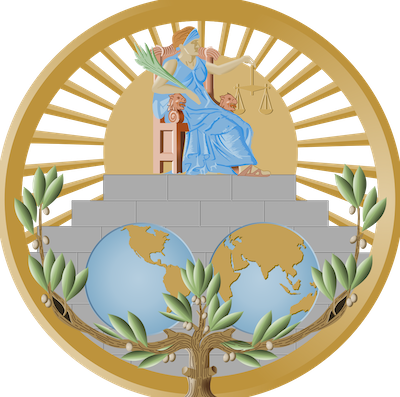Harold Acemah.
[Aluta Continua]
On Tuesday, April 20, the International Court of Justice based at The Hague, Netherlands, reopened a 14-year old embarrassing case about reparations for gross violations of human rights committed by Uganda People’s Defense Force (UPDF) troops in Eastern DRC. The case was originally filed by DRC in 1999.
The government of DRC is demanding a whopping $4.3 billion as reparations for violence committed against Congolese nationals, damage to the environment and plunder of natural resources of DRC. In his opening remarks, DRC’s EU ambassador told the ICJ that, “the wrongful acts committed by Uganda against DRC cost the lives of many and had a deep and lasting effect on the country’s infrastructure and environment.”
The 25-year old dispute started in 1997 with the overthrow of DRC President Mobutu Sese Seko by Rwanda and Uganda who installed their puppet Laurent-Desire Kabila as president. In 2005, ICJ found Uganda guilty of gross violations of human rights committed between 1998 and 2003. According to credible sources, 400,000 people were killed in that conflict and over 1 million were injured and displaced.
The invasion of DRC by Ugandan troops from 1998-2003 was launched and undertaken without approval of the Parliament of Uganda which is the only branch of government with powers, under Uganda’s Constitution, to declare war and deploy Ugandan troops in a foreign country. Hence under Ugandan domestic law, the five-year operations of UPDF in DRC are illegal, irresponsible and unacceptable. When local media published stories in 1998 about the invasion of DRC by UPDF troops, government spokesmen, as usual, initially denied the reports which they eventually admitted. At its peak there were about 10 UPDF battalions deployed in Eastern DRC at enormous cost to Ugandan taxpayers.
The operations of UPDF in DRC remind me of the despicable and outrageous adventures of King Leopold of Belgium in the 19th century. One wonders how the NRM regime can claim to champion Pan-Africanism by invading, occupying and plundering the natural resources of an African country.
In 2002, the UN released a damaging report on the invasion and occupation of DRC territory by Rwanda and Uganda. The report mentioned names of several senior Uganda government officials who looted and plundered the natural resources of DRC with impunity.
Unlike Rwandan troops who gave whatever they looted and plundered in DRC to the national treasury in Kigali, Ugandan troops kept what they looted for personal use, consistent with the mindset and practice of Uganda’s greedy and selfish ruling clique. According to the UN report the items Rwanda and Uganda looted from DRC included gold, diamonds, coltan, timber and yes, hundreds of Congolese women.
The government of Uganda hired top international law firms to defend a difficult and frankly indefensible case at the ICJ. Among Uganda’s lawyers were eminent British legal scholar, Professor Ian Brownlie and former UN Legal Counsel, Erik Suy at a huge cost of over $1 million. Uganda lost the case and was ordered to pay DRC reparations to the tune of $10 billion.
The door was, however, left open for the two neighboring countries, which have a lot in common, to settle the matter out of court bilaterally with a view to reaching a mutually acceptable compromise which ICJ would endorse as a binding agreement.
The late James Wapakabulo, when he was Ugandan Foreign Minister, started the process by engaging his Congolese counterpart with positive results. It looks like Wapa’s efforts were not followed up after he passed away on March 27, 2004 which is regrettable.
Why should Ugandan taxpayers pay hefty reparations to DRC for crimes committed by persons who are well known to the United Nations? While the ICJ handles disputes between states, these persons should in fact stand trial and account for their misdeeds at the ICC.
I appeal to the Uganda Law Society to urgently petition ICJ on this matter on behalf of the wananchi of Uganda.
Ambassador Harold Acemah is a political scientist and a retired career diplomat based at Arua City, Uganda.
Arua, Uganda.
April 23, 2021.







